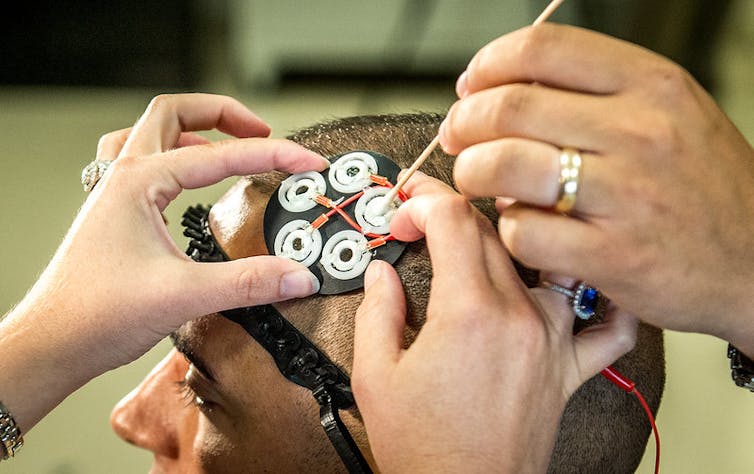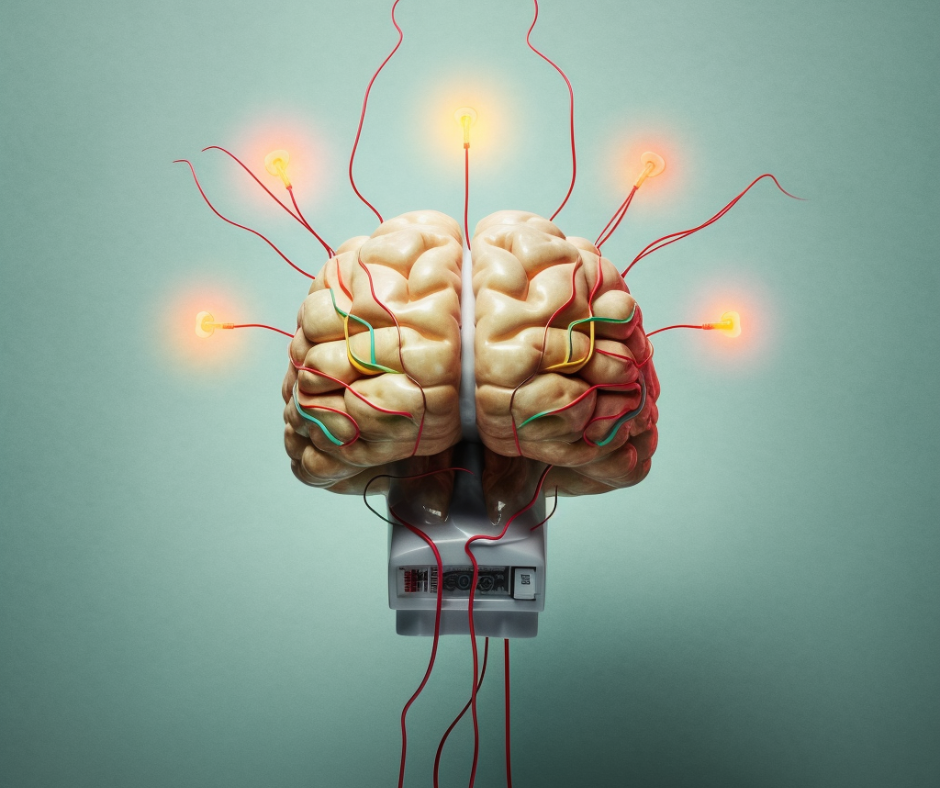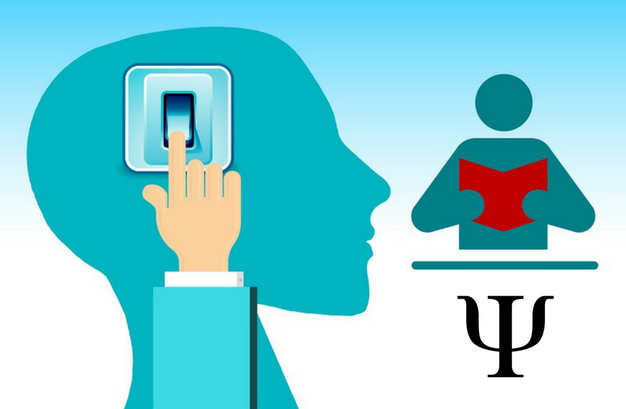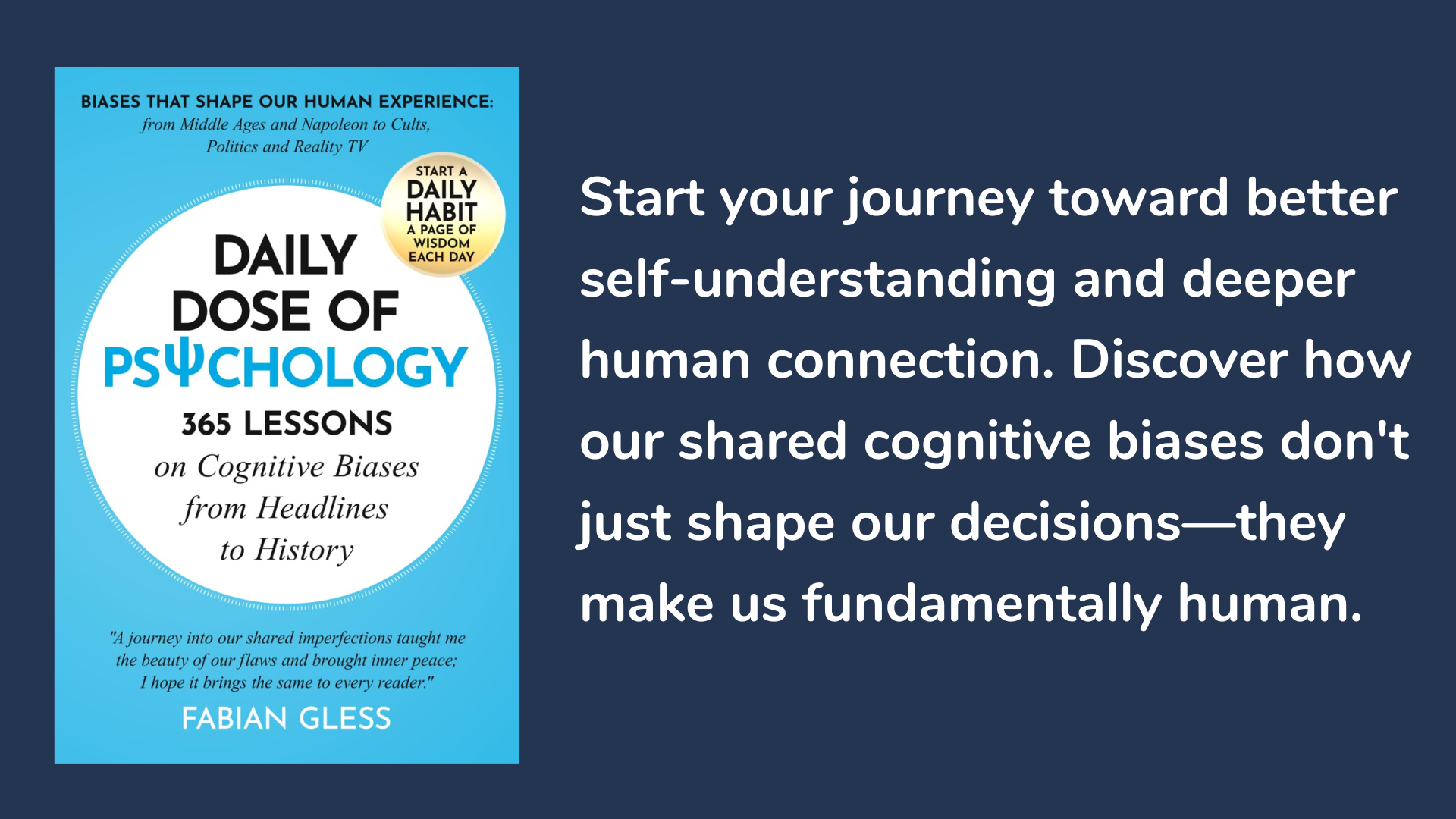Psychology Classics On Amazon

Rhythmically Stimulating the Brain With Electrical Currents Could Boost Cognitive Function, According to Analysis of Over 100 Studies
A meta-analysis helps resolve conflicting evidence on the benefits of transcranial alternating current stimulation (tACS).
Figuring out how to enhance a person’s mental capabilities has been of considerable interest to psychology and neuroscience researchers like me for decades. From improving attention in high-stakes environments, like air traffic management, to reviving memory in people with dementia, the ability to improve cognitive function can have far-reaching consequences. New research suggests that brain stimulation could help achieve the goal of boosting mental function.
In the Reinhart Lab at Boston University, my colleagues and I have been examining the effects of an emerging brain stimulation technology – transcranial alternating current stimulation, or tACS – on different mental functions in patients and healthy people.
During this procedure, people wear an elastic cap embedded with electrodes that deliver weak electrical currents oscillating at specific frequencies to their scalp. By applying these controlled currents to specific brain regions, it is possible to alter brain activity by nudging neurons to fire rhythmically.
Why would rhythmically firing neurons be beneficial? Research suggests that brain cells communicate effectively when they coordinate the rhythm of their firing. Critically, these rhythmic patterns of brain activity show marked abnormalities during neuropsychiatric illnesses. The purpose of tACS is to externally induce rhythmic brain activity that promotes healthy mental function, particularly when the brain might not be able to produce these rhythms on its own.
However, tACS is a relatively new technology, and how it works is still unclear. Whether it can strengthen or revive brain rhythms to change mental function has been a topic of considerable debate in the field of brain stimulation. While some studies find evidence of changes in brain activity and mental function with tACS, others suggest that the currents typically used in people might be too weak to have a direct effect.
When faced with conflicting data in the scientific literature, it can be helpful to conduct a type of study called a meta-analysis that quantifies how consistent the evidence is across several studies. A previous meta-analysis conducted in 2016 found promising evidence for the use of tACS in changing mental function. However, the number of studies has more than doubled since then. The design of tACS technologies has also become increasingly sophisticated.
We set out to perform a new meta-analysis of studies using tACS to change mental function. To our knowledge, this work is the largest and most comprehensive meta-analysis yet on this topic, consisting of over 100 published studies with a combined total of more than 2,800 human participants.

After compiling over 300 measures of mental function across all the studies, we observed consistent and immediate improvement in mental function with tACS. When we examined specific cognitive functions, such as memory and attention, we observed that tACS produced the strongest improvements in executive function, or the ability to adapt in the face of new, surprising or conflicting information.
We also observed improvements in the ability to pay attention and to memorize information for both short and long periods of time. Together, these results suggest that tACS could particularly improve specific kinds of mental function, at least in the short term.
To examine the effectiveness of tACS for those particularly vulnerable to changes in mental function, we examined the data from studies that included older adults and people with neuropsychiatric conditions. In both populations, we observed reliable evidence for improvements in cognitive function with tACS.
Interestingly, we also found that a specialized type of tACS that can target two brain regions at the same time and manipulate how they communicate with each other can both enhance or reduce cognitive function. This bidirectional effect on mental function could be particularly useful in the clinic. For example, some psychiatric conditions like depression may involve a reduced ability to process rewards, while others like bipolar disorder may involve a highly active reward processing system. If tACS can change mental function in either direction, researchers may be able to develop flexible and targeted designs that cater to specific clinical needs.
Developments in the field of tACS are bringing researchers closer to being able to safely enhance mental function in a noninvasive way that doesn’t require medication. Current statistical evidence across the literature suggests that tACS holds promise, and improving its design could help it produce stronger, long-lasting changes in mental function.![]()
Shrey Grover, Ph.D. Candidate in Psychological and Brain Sciences, Boston University
This article is republished from The Conversation under a Creative Commons license. Read the original article.
Hope you enjoyed reading this article examining the effects of transcranial alternating current stimulation on different mental functions.
Want to read more great articles?
See following link to check out a fascinating collection of psychology articles by leading academics and researchers.
This Psychology Symbol - Vintage Retro Striped Sunset T-Shirt is available from Amazon (prime eligible) in a range of colors for women and men. Sales help support this website, which has been providing free and comprehensive information and resources for psychology students and educators since 2008.
Recent Articles
-
Self, Consciousness, and Being: The Transcendent Perspective
Feb 19, 25 09:45 AM
Discover Self, Consciousness, and Being: The Transcendent Perspective, a deep exploration of self, consciousness, and the ideal human experience. -
Daily Dose of Psychology
Feb 19, 25 06:50 AM
Start your journey toward better self-understanding and deeper human connection. Discover how our shared cognitive biases don't just shape our decisions—they make us fundamentally human. -
Behavioural Changes and Mental Health: When Should You Worry
Feb 19, 25 05:37 AM
Informative article exploring behavioural changes and mental health
Know someone who would love to read Sleep Paralysis: Why Modern Horror Is Fascinated by Old Superstitions of Troubled Slumbers? Share this page with them.
Please help support this website by visiting the All About Psychology Amazon Store to check out an awesome collection of psychology books, gifts and T-shirts.
Go From Transcranial Alternating Current Stimulation Article Back To The Home Page







